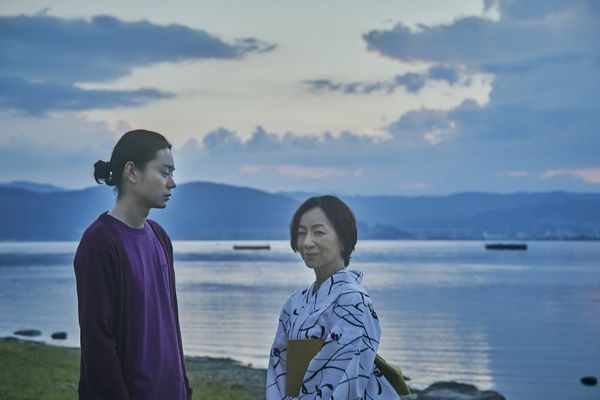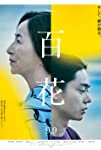Eye For Film >> Movies >> A Hundred Flowers (2022) Film Review
A Hundred Flowers
Reviewed by: Amber Wilkinson

Flowers are an ephemeral and singular object in producer-turned-director Genki Kawamura’s feature film debut, adapted from his own novel. One of them sits wilted in a vase in the home of Izumi (Masaki Suda), who is grappling with dementia - a rather on the nose metaphor that sets the tone for a film that while demonstrating some elegant filmmaking becomes emotionally glutinous, its revelations gummed up rather than freeing.
With the ageing global population perhaps it’s no surprise that memory loss as a way of examining the things we want to remember and choose to forget has been cropping up regularly in cinemas across the world since the turn of the century, in films as diverse as Lee Chang-dong’s Poetry, Ignacio Ferraras’ Wrinkles, Richard Glatzer and Wash Westmoreland’s Still Alice and Michael Haneke’s Amour. The film with which Kawamura’s film shares the most DNA, however, is Florian Zeller’s The Father, since it aims to immerse us in the fragmented and confused world of Izumi at the same time as exploring her difficult relationship with her son Yuriko (Mieko Harada).

The distance between the two is pointedly highlighted near the beginning of the film as we see him drop in late on New Year’s Eve, only to discover she has wandered off, later barely touching the enormous amount of food she has readied for him and wishing her happy birthday as the new year begins before making his excuses and leaving.
The nub of their estrangement is an episode from their past, gradually revealed, and is one of the problems with the film since it is hard to buy just how angry and unforgiving Yuriko is about it - especially as his newly pregnant wife (Masami Nagasawa) seems to be lobbying on behalf of her mother-in-law. The crux of his anger - that his mum might potentially forget the thing that pains him the most - seems increasingly petty to the outside observer to the point at which it’s hard to believe he would be so remarkably lacking in empathy, especially as he is about to become a father himself.
Kawamura - who previously produced the likes of Weathering With You and Your Name - is at his most successful when he is evoking the sense of confusion experienced by Izumi. Though he never reaches the heights of The Father’s maelstrom of forgetfulness, which conveyed the panic and disorientation often associated with such episodes, looping scenes in a supermarket, which show Izumi repeatedly shopping for the same items, or a visit where she climbs a set of stairs that seems to be never-ending highlight the blur of her world. The costuming from Daisuke Iga also subtly picks up on the film’s flower theme, with Izumi almost always wearing yellow coats, cardigans and jackets as though she is a bloom herself.
The past intrudes on the present in flashback, and though the moves between the periods are worked smoothly enough, the film feels torn between showing one perspective and the other while struggling to marry the two. For every subtle image Kawamura comes up with - Izumi carrying a folded umbrella in torrential rain having forgotten to use it or the way that there are many things from our past that even those without memory loss don’t remember - he includes others that become laboured, such as Izumi’s constant desire to see what she terms as “half fireworks” or repeated encounters with a box of animal crackers.
Kawamura - who won the best director Silver Shell at San Sebastian last week - has a clear destination in mind but by relying on this heavy imagery to convey the emotional beats of the story, he forgets the subtler parts needed to make this emotional journey a truly memorable one, with a resolution feeling more of a rush than the gradual development it should.
Reviewed on: 28 Sep 2022















